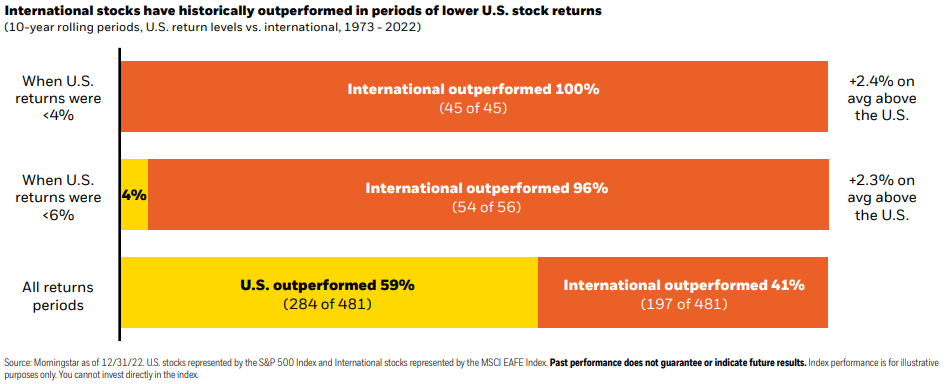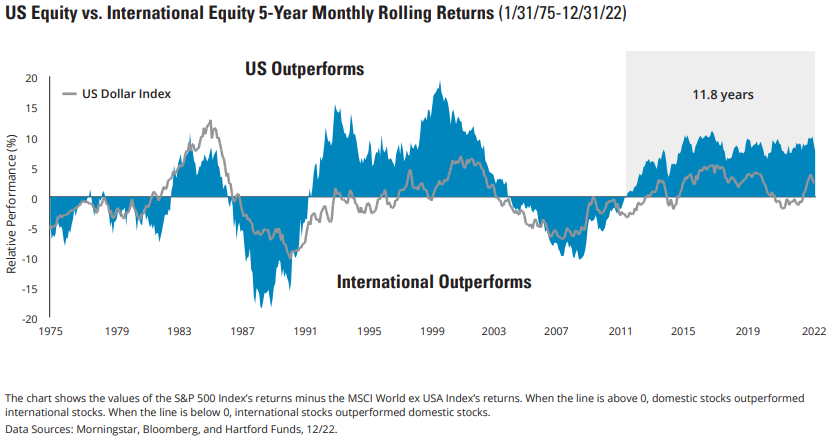4/2025
Well that was a week…
By now, we assume all Cahaba Wealth clients know that we do not react to short-term movements in the stock market. As we’ve said time and again, market volatility is a constant that allows stocks to generate higher returns than safer investments like cash and bonds. Successful long-term investment is difficult because it requires discipline. Short-term pullbacks are frequently accompanied by narratives that only serve to reinforce the accompanied anxiety. Telling yourself to remain calm and not react during these periods is what separates the opportunities from setbacks.
We were not surprised that President Trump announced tariffs on Wednesday. What was a surprise was the breadth of the sweeping tariffs. This subsequently caused panic and the resulting selloff in stocks. At the close of Friday’s trading, the S&P 500 was down nearly 10% in the last two days, and the S&P 600 (US small company stocks) lost almost 12% in that span. Selling has been indiscriminate and has spread to stocks around the world. We are not ones to react with panic to this kind of movement, but we certainly feel the need to comment on this climate.
As many of our long-term clients know, we have lived through several bizarre scenarios over the past 30 years. Between the 2000-2002 dot.com bubble bursting, the financial crisis of 2008-2009, Covid, and the bond bear market of 2022, it’s been a whirlwind. During these phases, we have used financial planning and cash flow projections to help our clients navigate these various challenges. In most cases, they continue to thrive and achieve financial goals. Even with those specific market downturns, portfolios continue to be positive over that timeframe, and investing remains the best option to outstrip inflation and grow assets. That perspective hasn’t changed with the recent announcements.
Perhaps one positive of this week is the return of bonds to the “safety” trade. US bonds are up roughly 1% this week, over 3.5% year to date, and are providing the cushion that a balanced portfolio should hope for during stock downturns. Diversification works! With the 10-Year Treasury at or below 4%, we may also see a decrease in Federal interest payments and the possibility to refinance recent mortgages.
The stated goal of the tariff strategy is to bring more balance to the global trade landscape and improve US national security. Both goals are logical and appear to be in the best long-term interest of the United States. However, achieving these goals is complicated. Onshoring manufacturing and negotiating reciprocal trade agreements does not happen overnight. In addition, the near-term impact of tariffs is perceived by economists as an immediate tax. The desire to have the United States economy increase the percentage of GDP generated through manufacturing is achievable but will need to be navigated carefully to avoid major economic disruption.
The unpredictable nature of how the tariff strategy was announced is causing the markets the most consternation. One thing that markets hate is uncertainty. Is The President simply using this as a negotiating tactic with each country to get a better deal? How long will these tariffs be in place? Will the tariffs end up either receding or going away altogether? We currently don’t know the answer to any of these questions. What we do know is that once clarity returns, stocks will rejoice.
We hold our convictions that planning and long-term views of cash flow allow clients to weather any storm. Your asset allocation is designed for this very situation. Where possible, we will explore opportunities to use this downturn to our clients’ long-term advantage. If you feel more anxiety and concern about your portfolio than you normally might, it may be a sign that your risk tolerance is not in line with your asset allocation. Please reach out if you would like to discuss in greater detail. In the meantime, we are confident that this pullback will join the previous selloffs as a long-term buying opportunity.
As always, thank you for your trust and confidence.
Cahaba Wealth Management is registered as an investment adviser with the SEC and only transacts business in states where it is properly registered, or is excluded or exempted from registration requirements. Registration as an investment adviser does not constitute an endorsement of the firm by the SEC nor does it indicate that the adviser has attained a particular level of skill or ability. Cahaba Wealth Management is not engaged in the practice of law or accounting. Always consult an attorney or tax professional regarding your specific legal or tax situation. Content should not be construed as personalized investment advice. The opinions in this materials are for general information, and not intended to provide specific investment advice or recommendations for an individual. Content should not be regarded as a complete analysis of the subjects discussed. To determine which investment(s) may be appropriate for you, consult your financial advisor.


